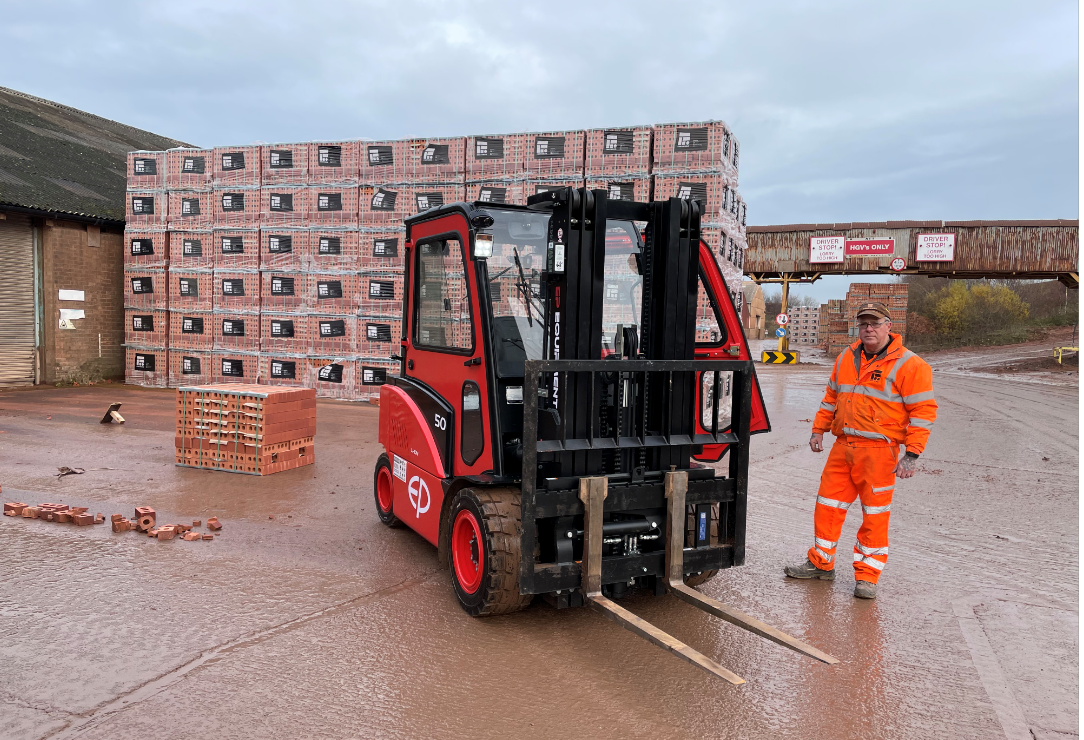Forterra understand that building and construction is responsible for 39% of all carbon emissions produced worldwide with operational emissions from heat, cool & lighting buildings accounting for 28%. While 11% comes from the embodied carbon associated with materials & construction processes throughout the whole building lifecycle (World GCB, 2020). Embodied carbon is certainly the blind spot of the construction industry, this is the energy consumed to harvest, manufacture, assemble, transport, repair and maintain a building. In order to fight the climate crisis, addressing embodied carbon requires radical cross-sector coordination supported by the whole value chain, this is the only way to transform the construction industry to net-zero future.
Forterra is a world leader in the manufacturer of a diverse range of clay and concrete building products used extensively within the construction sector. Employing over 1,800 people across 18 manufacturing facilities. As an industry leader & innovator, Forterra are pioneering a new train of thought by adopting a transformative decision making process in all areas of the business. Keeping Britain building with three major considerations -people, planet & product range.
Investing over 3800 hours of health & safety training throughout the business in 2020, removing unnecessary plastic from the packaging process, restoring land to encourage the return of wildlife and actively adapting core products to reduce their carbon impact are just some of the ways that Forterra are balancing economic growth with sustainable development. environmental challenges such as Forterra are addressing a multitude of new policies, reducing resource consumption, opting for clean energy alternatives and substituting primary resources with alternative materials. The Chief Executive of Forterra Stephen Harrison even commissioned specific task-force groups focused on key priorities of renewable energy investment, carbon emissions and plastic packaging reduction. Forterra are actively encouraging the rest of the supply chain to operate in accordance with their practices addressing embodied carbon produced in the entire construction cycle.
With ambitious goals to accelerate sustainability in the construction industry, Forterra’s aim is to comprehensively tackle embodied carbon, Forterra reviewed their environmental impact beyond obvious ‘carbon hotspots’ with a whole-building life-cycle assessment. Enhancing their environmental awareness boosted Forterra’s sustainability commitments. The environmental impact of material handling, storage and picking operations is often unaddressed by businesses. However, when Forterra discovered replacing one diesel forklift truck with lithium power had the same impact as taking 25 diesel cars off the road; Forterra looked to Lithium Power with the aim to identify the best material handling equipment to minimise the carbon footprint of their inbound logistics activities. Lithium power is by far the most environmentally considerate energy source in the material handling world.
Investing over 3800 hours of health & safety training throughout the business in 2020, removing unnecessary plastic from the packaging process, restoring land to encourage the return of wildlife and actively adapting core products to reduce their carbon impact are just some of the ways that Forterra are balancing economic growth with sustainable development. environmental challenges such as Forterra are addressing a multitude of new policies, reducing resource consumption, opting for clean energy alternatives and substituting primary resources with alternative materials. The Chief Executive of Forterra Stephen Harrison even commissioned specific task-force groups focused on key priorities of renewable energy investment, carbon emissions and plastic packaging reduction. Forterra are actively encouraging the rest of the supply chain to operate in accordance with their practices addressing embodied carbon produced in the entire construction cycle.
With ambitious goals to accelerate sustainability in the construction industry, Forterra’s aim is to comprehensively tackle embodied carbon, Forterra reviewed their environmental impact beyond obvious ‘carbon hotspots’ with a whole-building life-cycle assessment. Enhancing their environmental awareness boosted Forterra’s sustainability commitments. The environmental impact of material handling, storage and picking operations is often unaddressed by businesses. However, when Forterra discovered replacing one diesel forklift truck with lithium power had the same impact as taking 25 diesel cars off the road; Forterra looked to Lithium Power with the aim to identify the best material handling equipment to minimise the carbon footprint of their inbound logistics activities. Lithium power is by far the most environmentally considerate energy source in the material handling world.
How Lithium Power Can Green Up Your Supply Chain?
Designed for optimal efficiency, Lithium-ion is currently the most non-polluting, energy saving & environmentally sound option for any business aiming to mitigate the impact of their supply chain. With super-fast charger, Lithium can fulfil the charging demands of the battery at rapid speeds, using much less electricity compared to traditional lead-acid. Recent recycling solutions have made Lithium even more appealing as the battery often still retains enough capacity to serve second life functions.
As well as being fuel free, Lithium is also Integrated with a maintenance free battery. This reduces operating costs by up to 75%. At Lithium Forktrucks UK we are offering Lithium at a similar price point to traditional power to ensure clean energy alternatives are accessible to all businesses. Lithium powered forklift trucks & material handling is the clear option for those with ambitious sustainability targets & drive for economic growth.
